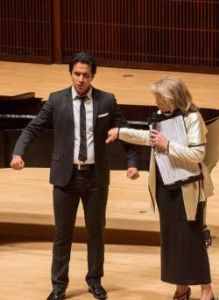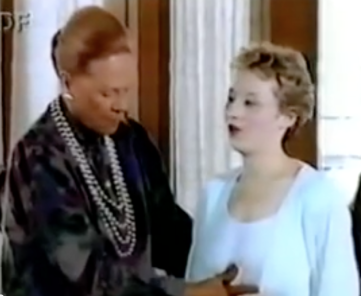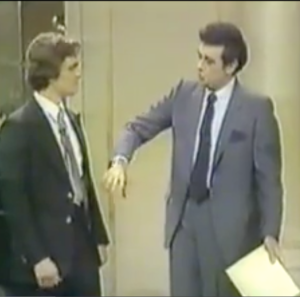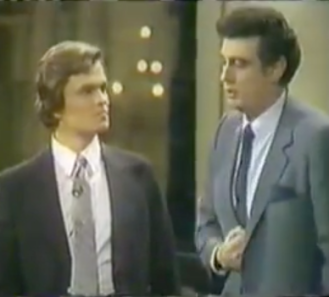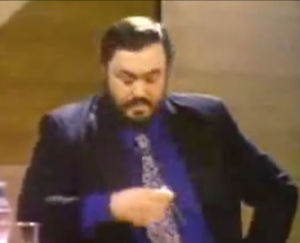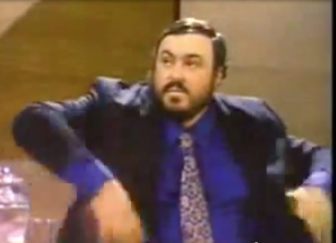I have found myself in conversation more times than I can count with young singers who are at their wit’s end over the issue of YAPs (Young Artist Programs). Auditioning for them, the expense for fees and travel, the rejection in the form of the charmingly termed PFOs (Please F*** Off), the wondering what went wrong, and what on earth to focus on in the interim until next year’s round of auditions. And finally, there is the lingering question of, “what if I am getting too old to be accepted into a young artist program…..”
YAPs truly are a wonderful development. To read stories about older generation singers striving to get an audience, being lucky enough to be a select student of a highly respected and connected voice teacher, succeeding in open call auditions, or just gaining the ear of various connected people, almost by chance; one comes away grateful that an organized system to help foster (and filter) has become such a mainstay in our musical community.
However, the degree to which the YAP has become viewed as the sole avenue to a career is perhaps not so helpful. Even if it is not actually true, it often is tacitly accepted to be so. And though YAPs are, on the whole, wonderful opportunities for young singers, it is because these programs are associated with companies which have their own business interests in mind that there are a host of potential pitfalls which come along with that, about which I have written elsewhere (link).
But one of the issues is to do with this underlying conception that the path toward a career is through a YAP, effectively putting the career start after the YAP. The YAP acts as a career launching pad. And if a singer fails to get a YAP, an understandable funk descends, despairing at maybe never having a career as a result. So perhaps it’s time for a new mentality; a new way of concieving of the career path.
So, here is a new rule: Your career begins precisely when you graduate, if not sooner –
Now what are you doing about it?
Creativity isn’t what you do once you have been hired for a job. Your career is itself an act of creativity.
You are constantly carving and designing the path that it will take and what it will look like and how it will resemble your goals and ambitions as they change and grow. The YAP process is as often about how you’ve been advised at school, and how you are advised at auditions, and how you are advised if you get into one. And much of that advice may prove indispensable, to be sure. But there are lots of hours in the day, and lots of days and weeks in the year to fill with your musical goals – especially if you don’t get a YAP. So begin it now.
So what are some other avenues? Well, this is not an exhaustive list, but a few thoughts come to mind.
Schools and the direction they give often fall prey to this same mode of thinking about the centrality of the YAP and the opera-centered career, so they have often neglected to teach some more practical things, such as concert repertoire.
With or without a YAP, we all often have the holidays free, and the odd break here and there where a Messiah, or a Faure or Brahms Requiem could be squeezed in to make some extra cash. Far too many young singers are coming to this concert rep way too late when they should be graduating with it comfortably in their back pockets to pull out every time some church, local ensemble, etc. needs a soloist. One year I was invited to 4 separate Messiahs in a single week! 1 in a college town, and 3 in Chicago. Any 20-something singer who had spent months and months polishing 5 arias and zero time on “O Thou That Tellest” was simply out of luck. There goes an hundred bucks or more!
And you know who else performs on these concerts? Conductors. Conductors who advise and even hire for other gigs, operatic and otherwise.
Another option is the recital. Put on your own. Now, I can see where people might not see how this could possibly create visibility in anything other than the local audience in attendance. But don’t forget – you aren’t the only working musician on that stage.
There are different reasons to work with different people. Sometimes it is to be frugal, sometimes to work with friends. But if you reach out to a respected accompanist in the area, someone who works a lot with other conductors and companies, and hire them – yes, hire them – extend your finances to pay an artist for their collaboration… then do your due diligence, be a pleasure to work with, put on a good recital, and they too will be circling the community with your name on their lips.
Another possibility is the specialist ensemble. Dame Emma Kirkby became the artist she is by being a member of period ensembles, and by refining her art in and through these, she became increasingly relied on in soloist capacity and carved a career and reputation for herself which then extended beyond those ensembles.
All of these and more are opportunities that could be taken and too often are thought of as last resorts or only supplemental at best. But that poses another problem, as when these opportunities do present themselves in one form or another, the work is often shoddy. And I don’t mind saying that when I or my wife recommend singers for gigs, nothing comes with a higher recommendation than reliability, preparation, and collegiality. No amount of talent or vocal goods can makeup for a lack of those three.
So start today. Don’t ask when your next YAP audition is. Ask when your next gig is. Because that is the definition of a working singer.


